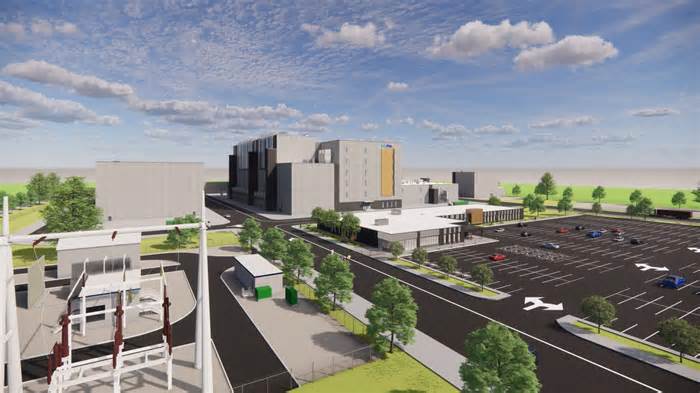Ford and SK, a Korean battery maker, announced plans to build a new $1. 2 billion battery cathode plant in Bécancour, like Quebec’s Battery Valley.
Ford and SK have built or announced several battery plants in the U. S. The U. S. Food and Drug Administration is calling for the automaker’s ambitious electric vehicle plans, which will require a large backlog in battery supply.
In addition to mobile battery production, corporations sought to build the entire battery chain in North America.
Today, Ford, SK and EcoProBM, a cathode specialist, announced that they have partnered for a large new plant in Bécancour, Quebec, to produce battery cathodes:
SK On, EcoProBM and Ford today announced an investment of C$1. 2 billion to build a cathode production plant that will supply fabrics that will ultimately supply batteries for Ford’s long-endurance electric vehicles.
They plan to start production in the first part of 2026 and increase production to 45,000 tonnes of CAM consistent with the year.
They wrote in a press that will produce NCM cathodes:
EcoPro CAM Canada LP will manufacture high-quality cathode active fabrics and, specifically, nickel-cobalt manganese (NCM) for rechargeable batteries that target higher degrees of functionality and advanced EV diversity to existing products, thanks in part to EcoPro’s base envelope gradient (CSG) technology.
The plant is being built in Quebec’s Battery Valley, which received this name due to a series of investments in battery structures in the region, GM-Posco, Nemaska Lithium, Nouveau Graphite, etc.
Ford says it has already begun:
Construction has begun on the 280,000-square-meter (or more than 3 million square feet) site and will come with a six-story construction that will generate approximately 345 new jobs for Canada: engineers and sales professionals and cooperatives for academics at local universities and schools in Quebec. EcoPro CAM Canada LP will also conduct studies and progression activities aimed at extending battery protection and functionality, as well as increasing productivity and minimizing the environmental footprint of its production process.
Lately, cathode ray fabric production is incredibly limited in North America, and this initiative is expected to meet North America’s battery curtain sourcing needs to make its electric cars eligible for the $7,500 federal tax credit.
Fred is editor-in-chief and senior editor of Electrek.
You can send on Twitter (open DMs) or by email: fred@9to5mac. com
With Zalkon. com, you can view Fred’s portfolio and get green investment ideas a month.

